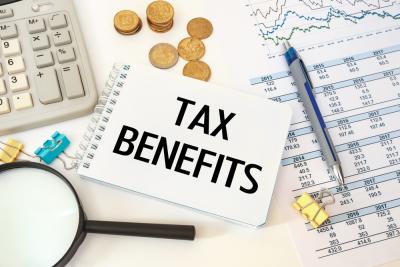Looming tax changes around furnished holiday lets and the approaching holiday season are driving inquiries for tax advice from current owners and those looking to buy, says Handelsbanken Wealth & Asset Management.
Current rules around furnished holiday lets – that is, Airbnb-style short-term holiday rental properties – include more favourable tax rules versus more traditional rented assets, including with regards to both income and capital gains tax.
From April 5 2025, however, the regime will be abolished as part of the current UK government's efforts to address housing market distortions, simplify regulations and raise funds.
Mark Collins, Head of Tax at Handelsbanken Wealth & Asset Management, says: “With holiday season around the corner and a significant shift in the tax regime on the horizon, it should come as little surprise that we’ve seen a significant uptick in advice requested by customers thinking about selling their current holiday let property, or halting the buying process altogether. With the planned changes all designed to bring tax rules for holiday lets into line with tax rules for other residential property lettings, it is crucial for current or potential owners to understand what this means for them."
The new rules will mean that interest on borrowings (mortgage interest and associated financing costs) will no longer be fully deductible when calculating taxable profits from a rental property. In addition, various capital gains tax reliefs will no longer be available, including business asset disposal relief, business assets rollover relief, and gifts holdover relief – while profits from holiday lets will no longer count as ‘earnings’ for pension contribution purposes.
The new rules will also mean that owners will no longer be able to claim tax relief on the original cost of domestic items purchased for use in the property.
Moreover, where a holiday let is owned jointly by spouses or civil partners, by default each partner will be liable for tax on 50% of the rental profits. This could have significant consequences for anyone whose income is close to the threshold of a higher income tax bracket, increasing their personal income tax burden.
Mark Collins adds: “While there is no getting away from the changes being made to the tax rules, in general terms, there are some changes that you could make between now and April of next year to sidestep some of the impact. With everyone in a unique position, we would strongly recommend taking professional advice to better understand how these rules will apply to your own situation.”
Submit a formal application with your partner to avoid being taxed equally
To avoid automatic ‘50:50’ taxation, spouses/civil partners could consider altering the beneficial ownership of their property to unequal shares. To effect this, relevant parties would also need to submit a formal application to HMRC to change the split of income from the property for tax purposes.
Sell up to make the most of current ‘business asset disposal relief’ rules
If reducing capital gains tax is a priority, owners could consider selling their holiday let before the next tax year to secure business asset disposal relief at the current 10% capital gains tax rate. Please note that other conditions apply.
Give away the property to claim the current ‘gift holdover relief’
Giving the property away to a family member before the coming tax year would allow owners to claim capital gains tax ‘gifts holdover relief’. However, the amount of gain that may be ‘held over’ may need to be time-apportioned if the property has not qualified as a short-term holiday let throughout your ownership. There may also be stamp duty issues to consider. If they occupy the property personally then they must pay an open market rent to ensure the gift is effective for inheritance tax purposes.
Maximise tax relief by topping up your pension during this tax year
If short-term holiday lets provide the only source of earnings, owners could consider maximising their personal pension contributions this tax year. They may find that they are eligible to bring forward extra tax relief from the previous three tax years.




















Join the conversation
Be the first to comment (please use the comment box below)
Please login to comment